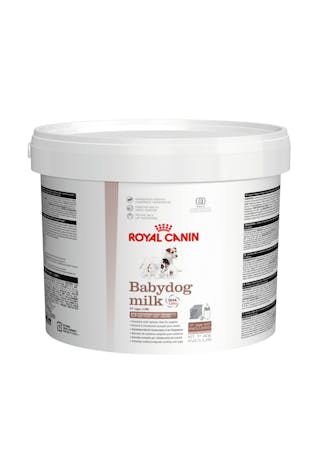
Discover our Puppy Growth Programme
Puppies are a bundle of fun but even though they seem boisterous and playful, they are at a delicate stage in their life. They’re discovering a lot, learning about the world and their little bodies are experiencing big changes as their bones harden and their brains develop rapidly. They start their life being completely dependent on mum but within a year, they’ll develop into confident, independent young dogs. That’s why they need specific support to grow up to be healthy.


ROYAL CANIN® Puppy Growth Programme: meeting their needs at every stage of growth
What puppies eat plays a key role in supporting healthy growth. They have complex nutritional requirements, a delicate digestive system, an immature immune system and their brain is developing. They need a food which provides them with all the energy and nutrients they require to maintain healthy growth. That’s why we have created the ROYAL CANIN® Puppy Growth Programme, a 4-stage feeding programme containing all the nutrients a puppy needs so your puppy always gets the right food at the right time. Let’s have a look!
Discover the rangeFrom birth to 3 weeks
Neonate Phase
You might not think there’s much happening at this point because your puppy will spend most of the time sleeping. But behind those snoozing eyes, their development is racing ahead. By the time they’re a couple of weeks old, your puppy will already be starting to walk, taking tentative steps to explore their new world. And as they start to interact, their protection from the maternal immunity progressively decreases.
If they can’t have their mother’s milk, that’s where ROYAL CANIN® BabyDog instant milk can help. It’s formulated to have a similar lactose content as their mother’s milk, and because they still have delicate digestion, it doesn’t include irritants such as starch which can upset their system.

Nutrition for the Neonate Phase

From 3 weeks to 4.5 months
Socialisation Phase
As puppies become more social and energetic, they need higher levels of nutrients than they can get from milk. At this point, you need to transition your puppy to other food. ROYAL CANIN® Starter Mother & Babydog rehydratable kibble is designed to be a puppy’s first experience of solids. It is energy-dense and full of the nutrients they need for all that exploring and socialisation.
At around two months old, your puppy will need a visit to the vet for vaccinations because they will have lost a lot of the immune protection they inherited from their mother. This is a good time to transition from ROYAL CANIN® Starter Mother & Babydog to ROYAL CANIN® Puppy, as it contains a complex of nutrients to help support their immune system.
Nutrition for the Socialisation Phase
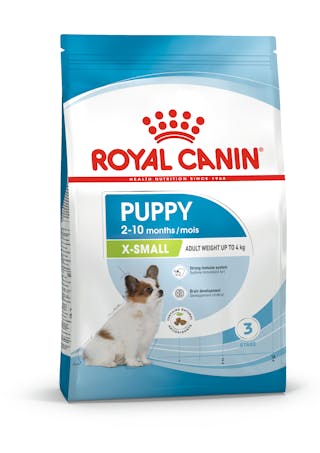
X-Small Puppy
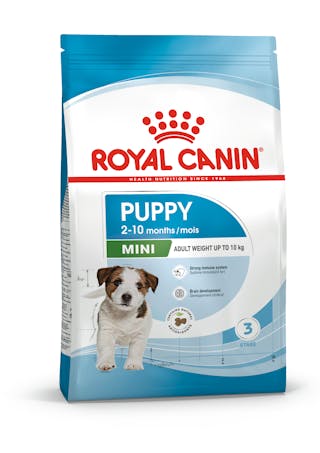
Mini Puppy
Medium Puppy
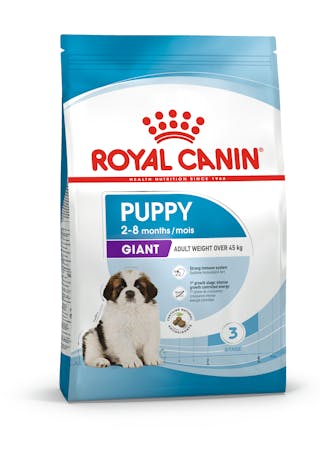
Giant Puppy

Giant Starter Mother & Babydog
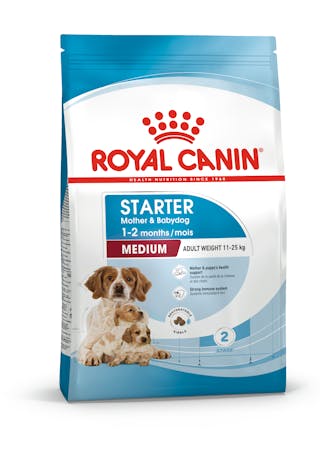
Medium Starter - Mother & Babydog
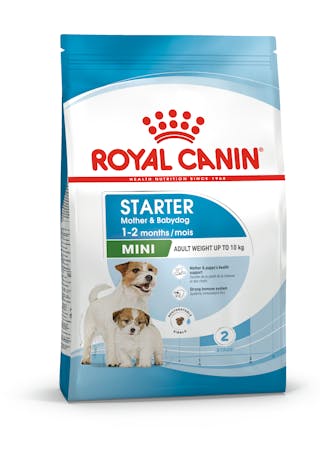
Mini Starter - Mother & Babydog
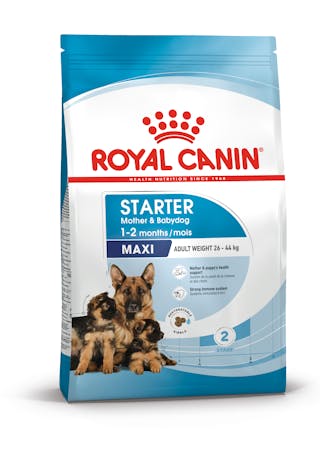
Maxi Starter Mother & Babydog
Starter Mother & Babydog Ultra Soft Mousse
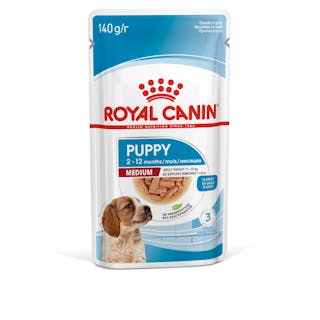
Medium Puppy Chunks In Gravy

Mini Puppy Chunks In Gravy
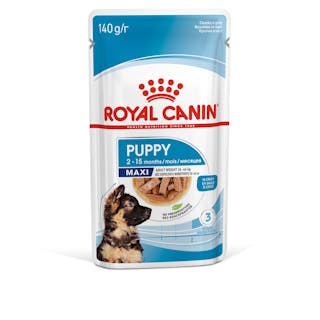
Maxi Puppy Chunks In Gravy
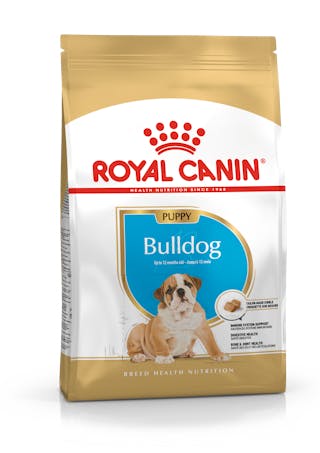
Bulldog Puppy
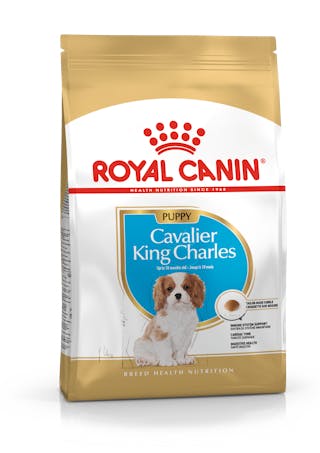
Cavalier King Charles Puppy
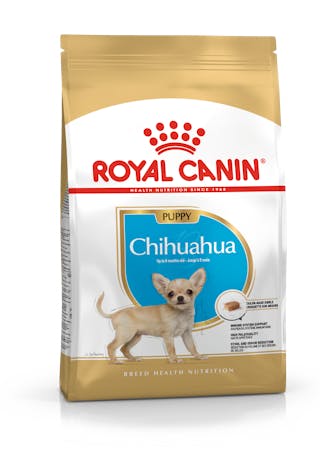
Chihuahua Puppy

Cocker Spaniel Puppy
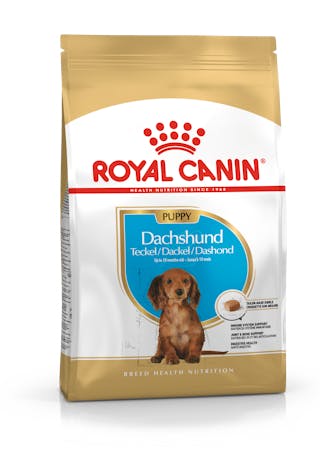
Dachshund Puppy
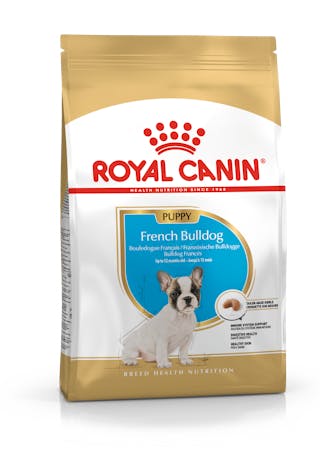
French Bulldog Puppy
German Shepherd Puppy

German Shepherd Puppy

Golden Retriever Puppy
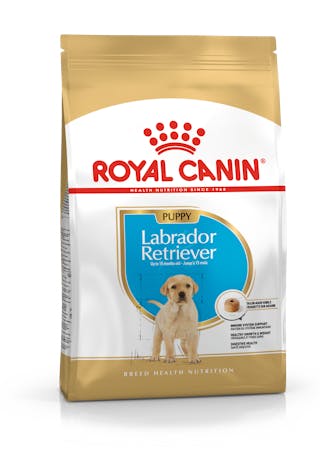
Labrador Retriever Puppy
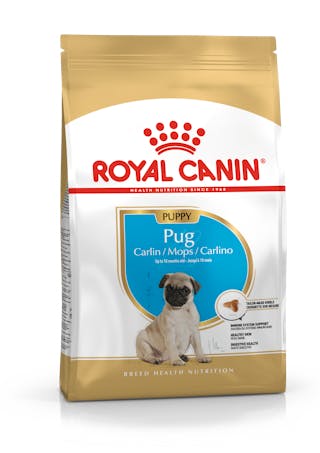
Pug Puppy
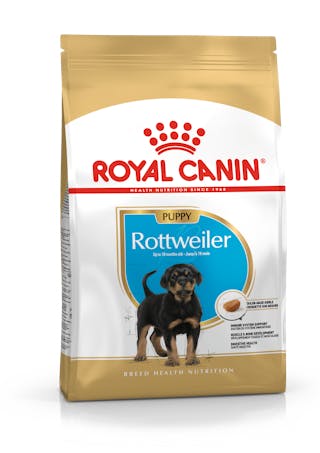
Rottweiler Puppy
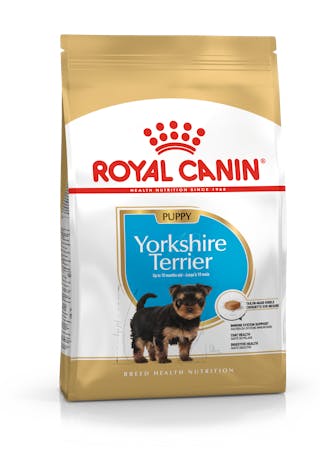
Yorkshire Terrier Puppy

Dalmatian Puppy
From 4.5 to 6 months
Juvenile Phase
As they continue growing in confidence, your puppy’s diet stays the same and it’s the calcium and phosphorus present in the ROYAL CANIN® Puppy that helps turn each bite into an opportunity to strengthen their bones and teeth. Getting the right nutritional support at this stage is crucial as your fragile puppy is building bones that within a year will be four times stronger than concrete. Impressive isn’t it!


From 6 months to adulthood
Adolescent PhaseBy Stage 4, your puppy is well on their way to adulthood, capable of great things, but they’re still a puppy. Even if they’re a big puppy, they’re not big enough to eat like a grown-up. They still have puppy needs and it’s important to stick to their ROYAL CANIN® Puppy diet until they reach adulthood, which varies depending on the breed or size and can take up to 2 years in giant breed dogs!
Nutrition for the Adolescent Phase
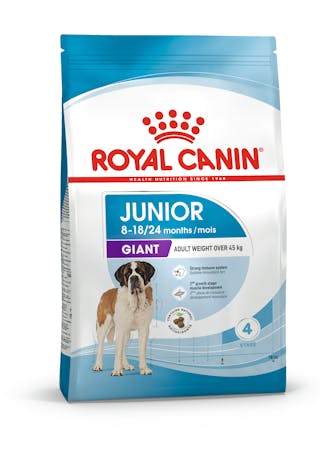
Giant Junior

Giant Puppy
Medium Puppy

Mini Puppy

X-Small Puppy

Maxi Puppy Chunks In Gravy

Medium Puppy Chunks In Gravy

Mini Puppy Chunks In Gravy

Bulldog Puppy

Cavalier King Charles Puppy

Chihuahua Puppy

Cocker Spaniel Puppy

Dachshund Puppy

French Bulldog Puppy
German Shepherd Puppy

German Shepherd Puppy

Golden Retriever Puppy

Labrador Retriever Puppy

Pug Puppy

Rottweiler Puppy

Yorkshire Terrier Puppy

Dalmatian Puppy
Developed by vets
The new formula was designed by veterinarians in our Research & Development centresBreeder tested
Dozens of breeders gave us feedback, to help ensure excellent nutritional benefitsPuppy approved
Tasted by 884 puppies worldwide
Brain development
What is at stake:
The first year is an intense and key development time for the maturation of your puppy’s brain, vision, and behavioural systems.
Nutritional answer:
A formula enriched with Omega-3 fatty acids (DHA) to support brain development.
Immune system support
What is at stake:
After weaning, the maternal immune system protection declines overtime, and your puppy will need support to build their own strong immunity.
Nutritional answer:
A formula which contains a complex of nutrients, including Vitamins E and C to help support the development of their healthy immune system.
Microbiome support
What is at stake:
Puppies have a delicate digestive system. Their gut microbiota is slowly adapting from maternal or substitute milk to solid food. The development of their digestive enzymes, and their intestines is ongoing.
Nutritional answer:
A combination of prebiotics (MOS) & highly digestible proteins to help promote a healthy balance of intestinal microbiota for digestive health.
Weight management
What is at stake:
Weight issues can start early for puppies and may have a negative impact on their future health and wellbeing. Healthy habits, set early, are key to support your pet for life.
Nutritional answer:
A formula with balanced nutrients and an adapted energy intake to satisfy their appetite while fulfilling their growing nutritional needs without compromising their weight.

The additional benefits of mixed feeding
As your puppy grows, their smell and taste are also developing. By offering them a variety of sensorial experiences you can make their feeding time even more stimulating. Each type of food, dry and wet, comes with their own set of benefits and by combining them, you’re increasing the benefits for your pet’s health.
A range packed with responsibility
It’s not only our food that we have carefully thought through. We’re leading the way towards sustainability with our new range of packaging. Discover how we’re working to help ensure that our packaging does not go to waste and learn about our commitment to become certified as carbon neutral by 2025.
Discover the Puppy Growth Programme

X-Small Puppy

Mini Puppy

Mini Puppy Chunks In Gravy
Medium Puppy

Medium Puppy Chunks In Gravy

Giant Puppy

Bulldog Puppy

Cavalier King Charles Puppy

Chihuahua Puppy

Cocker Spaniel Puppy

Dachshund Puppy

French Bulldog Puppy
German Shepherd Puppy

German Shepherd Puppy

Golden Retriever Puppy

Labrador Retriever Puppy

Miniature Schnauzer Puppy

Pug Puppy

Rottweiler Puppy

Yorkshire Terrier Puppy

Dalmatian Puppy

Maxi Puppy Chunks In Gravy
Check your puppy’s development with free, downloadable growth charts
You should ideally weigh your puppy every month until they are 6 months of age, then at least every 3 months until they become an adult. Based on WALTHAM research, the first Puppy Growth Charts are now available for you to download.
Choose from 10 charts depending on your puppy’s sex and estimated adult weight.
For puppies growing normally, you will see their plotted weight follow one of the centile lines on the chart. If their weight sits above or below these lines, it could mean that your puppy is too heavy or too light for their age. If you see a crossing of centile lines, this could indicate your pet growing quicker or slower than they should be and we would recommend you seek advice from your vet.
Watch the video to learn more about using the charts.